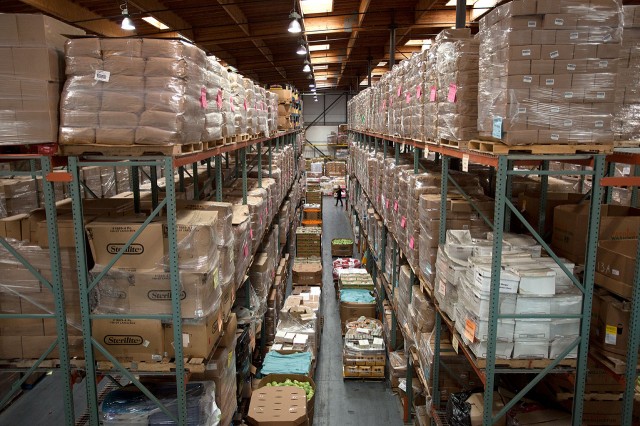
Bay Area food banks struggled throughout the Great Recession and its aftermath to feed the region's poor and hungry. Now they're facing a new challenge: a new federal farm bill, passed by the House on Monday night and now awaiting a Senate vote, that will cut food-stamp funding by billions of dollars over the next decade.
Paul Ash, executive director of the SF-Marin Food Bank, says the cuts will likely force people to seek meals at local food pantries and soup kitchens supplied by the food banks. "This is going to stretch every food bank in the state," he said. "It is all going to come down to our resources, and how many more people come to our food pantries."
Kathy Jackson, chief of Second Harvest Food Bank of Santa Clara and San Mateo counties, echoed those concerns. "There's no way in the world that the food bank can make up for the cuts we're seeing. I wish we could."
Jackson suggests that supporters of the cuts in food stamps (formally called the Supplemental Nutrition Assistance Program, or SNAP) probably think the nonprofit sector will be able to make up for the reductions. The farm bill does allocate some money to help feed the poor, providing a $200 million increase in funding to food banks.
The new cuts come on top of the expiration of a temporary increase in the food stamp program that was part of the 2009 federal stimulus expired. "This is kind of a double hit for people using food stamps," Ash said.
